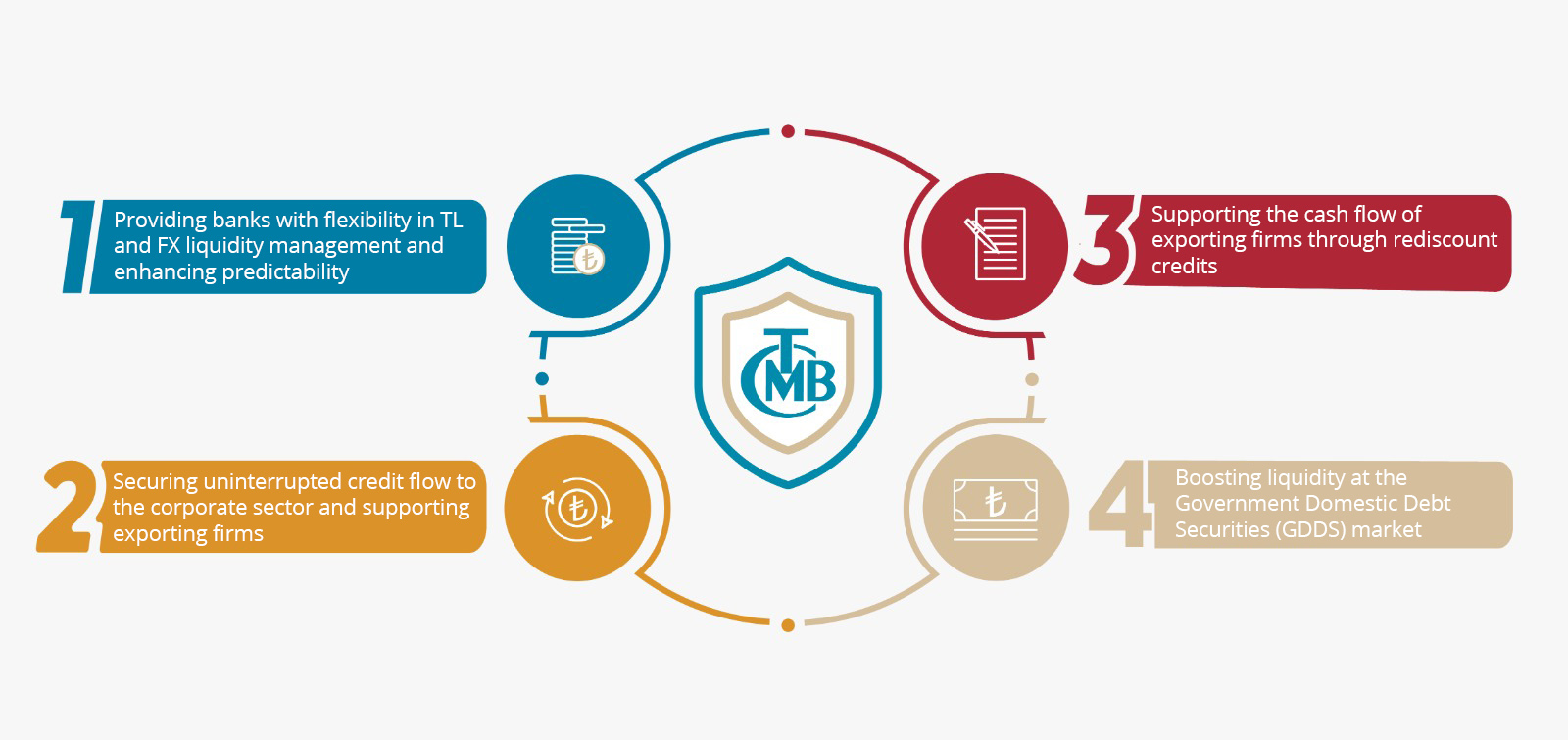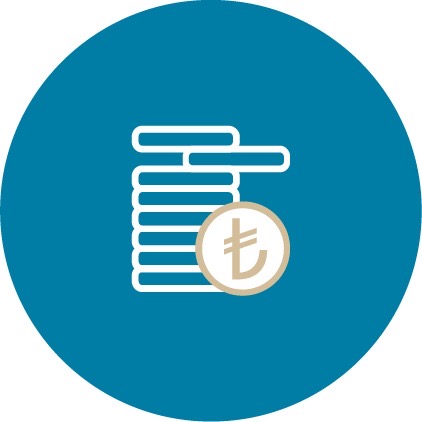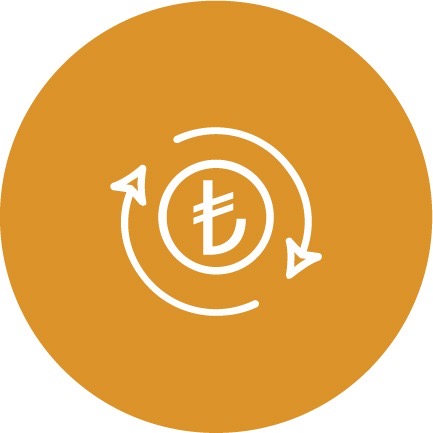Measures Taken Against the Economic and Financial Impacts of the Coronavirus
Measures Taken Against the Economic and Financial Impacts of the Coronavirus
The Coronavirus and Economy
The coronavirus (Covid-19) pandemic has evolved into a significant threat not only against health but also economies across the globe. Measures to prevent the spread of the pandemic have an adverse effect on individual consumption habits, production processes and employment.
Policy-makers all around the world put various practices in force to cope with the implications of the pandemic. Efforts have been made by central banks to provide liquidity, while measures have been taken to support the households and firms, which were stricken most by the pandemic through fiscal policies.
Measures Taken by the CBRT
Maintaining an uninterrupted and healthy functioning of financial markets, the credit channel and the cash flow is critical to contain the adverse effects of the coronavirus pandemic on the Turkish economy.
Accordingly, at the Monetary Policy Committee Meeting on 17 March 2020, the policy rate was reduced by 100 basis points from 10.75 percent to 9.75 percent.
Decision of the Monetary Policy Committee Meeting of 17 March 2020
Summary of the Monetary Policy Committee Meeting of 17 March 2020
In addition to this decision, a set of measures taken to contain the economic and financial impacts of the coronavirus were announced on 17 March, 31 March and 17 April 2020. These measures focus on four main objectives:

“Measures taken against the coronavirus pandemic aim at providing the banking sector and the corporate sector with the liquidity they need at favorable conditions.”
 Providing banks with flexibility in Turkish lira and foreign exchange liquidity management
Providing banks with flexibility in Turkish lira and foreign exchange liquidity management
- Banks will be provided with the liquidity they need through intraday and overnight standing facilities.
- In addition to one-week repo auctions, the Bank may inject liquidity to the market through repo auctions with maturities up to 91 days on the days needed.
- Liquidity limits of Primary Dealer banks for Open Market Operations (OMOs) were increased.
- In addition to conventional swap auctions with maturities of one, three and six months against US dollars, those held against euros and gold were also launched.
- Asset-backed securities and mortgage-backed securities were included in the collateral pool.
 Securing uninterrupted credit flow to the corporate sector and supporting exporting firms
Securing uninterrupted credit flow to the corporate sector and supporting exporting firms
- FX reserve requirement ratios have been reduced by 500 basis points for banks fulfilling the real credit growth criteria.
- On 17 March 2020, banks were offered a targeted additional liquidity facility and on 31 March 2020, these limits were increased.
- Turkish lira liquidity will be provided via repo auctions based on quantity auction method with maturities up to 91 days with an interest rate 150 basis points lower than the one-week repo rate.
- Turkish lira currency swap auctions with maturities of 1 year and six months based on quantity auction method will be conducted. With these swap auctions, related banks will be provided with Turkish lira liquidity against US dollars, euros and gold with an interest rate 100 and 125 basis points lower than the one-week repo rate, respectively.
 Supporting the cash flow of exporting firms through rediscount credits
Supporting the cash flow of exporting firms through rediscount credits
- The maturities for repayments of rediscount credits, which will be due between 18 March 2020 and 30 June 2020, have been extended by up to 90 days.
- An additional export commitment fulfillment time of 12 months has been offered for the rediscount credits whose export commitment has not been fulfilled yet and for the rediscount credits to be used between 18 March 2020 and 30 June 2020.
- To be effective from 20 March 2020, the maximum maturities for rediscount credits have been extended to 240 days from 120 days for short-term credit utilization, and to 720 days for longer-term credit utilization.
- Turkish lira-denominated rediscount credits for export and foreign exchange earning services have been offered for firms exporting goods and services. The total limit for those credits is TRY 60 billion.
 Strengthening the monetary transmission mechanism by boosting liquidity at the GDDS market
Strengthening the monetary transmission mechanism by boosting liquidity at the GDDS market
- Outright purchase operations under the OMO portfolio may be carried out in a front-loaded manner and these limits may be revised depending on market conditions. On 17 April 2020, the ratio of the OMO portfolio nominal size to the CBRT analytical balance sheet total assets, which had been set at a maximum of 5% for 2020 at the “Monetary and Exchange Rate Policy for 2020” text, was revised as a maximum of 10%.
- On 31 March 2020, the Primary Dealer banks were enabled to sell the GDDS that they have bought from the Unemployment Insurance Fund to the CBRT or to increase the liquidity facility offered in the framework of the OMO for a temporary period. Accordingly, securities totaling TL 15.6 billion have been purchased until 17 April 2020, and the data regarding these purchases have been announced.
- On 17 April 2020, it was decided to apply the limits offered to Primary Dealer banks for outright sales of GDDS to the CBRT independent of the repo transaction limits and to offer Primary Dealer banks a GDDS selling limit that is equal to the repo transaction limits.
- The related GDDS purchases will also be carried out within the total limit of maximum 10% set for the OMO portfolio,
- The GDDS to be purchased via the quantity auction method and the amount of purchases will be determined by the CBRT.
